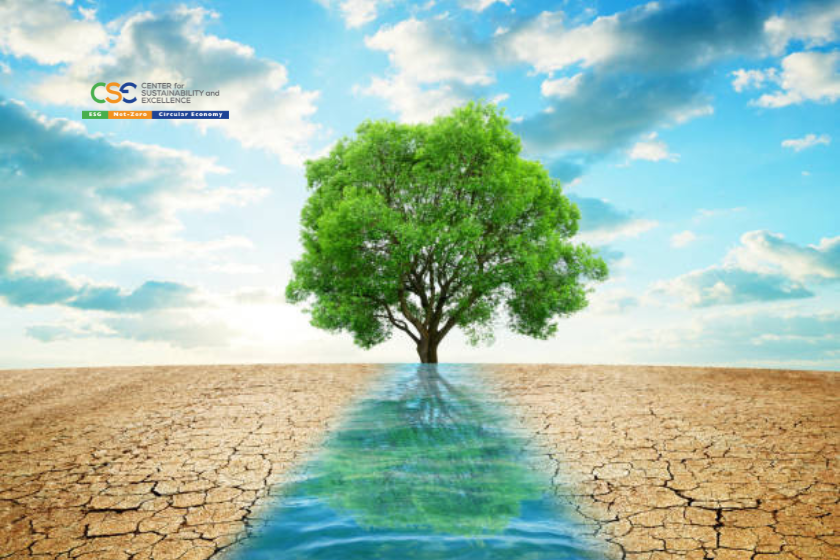Water scarcity is a pressing concern in the Gulf region, characterized by minimal rainfall, high evaporation rates, and frequent droughts. The majority of the region is classified as arid or semi-arid, and rapid population growth has led to a drastic reduction in per capita renewable water resources. If trends continue, by 2030, climate change is projected to further reduce renewable water resources by 20%. This poses a serious threat to development in the region, which largely depends on conventional (surface and groundwater) and nonconventional (desalinated water, treated wastewater, water harvesting, etc.) water sources that are under considerable strain.
ESG (Environmental, Social, and Governance) principles hold the key to addressing water scarcity in the Gulf-Asia region. With limited water resources, high aridity levels, and coastlines threatened by rising sea levels, this region is the most water-scarce globally. Effective implementation of ESG policies is essential for sustainable investment in the face of these challenges.
While ESG adoption is in its early stages in the Gulf, recent events like the 2022 and 2023 U.N. Climate Change Conferences have accelerated the movement towards climate finance regulations. Gulf Cooperation Council (GCC) countries have aligned their national visions with the U.N. Sustainable Development Goals, emphasizing citizen well-being and sustainability. A survey of Middle East CEOs in 2023 revealed a 46% intention to increase investments in ESG and sustainability initiatives over the next three years.
The Middle East, with its prominence in fossil-based energy, plays a pivotal role in global ESG progress. Although the region’s oil reliance poses a challenge for achieving net-zero emissions by 2050, abundant sunlight offers immense potential for solar energy. The GCC countries, in particular, enjoy some of the world’s highest solar exposure levels. To close the investment gap for sustainable development, both public and private sector financing must be mobilized.
The region is experiencing a noticeable shift towards ESG and sustainability, led by countries like the UAE. Notable initiatives, such as Saudi Arabia’s NEOM project and the Helios plant, demonstrate substantial green investments, reducing dependence on fossil fuels. These projects serve as models for future ESG endeavors and contribute to broader net-zero targets in the region.
Investing in ESG principles is essential for addressing water scarcity, mitigating climate change, and aligning with global sustainability goals in the Gulf-Asia region. It also presents significant opportunities for growth in renewable energy sources and underscores a commitment to sustainable development.
Join our upcoming Gulf & Asia | Certified Sustainability (ESG) Practitioner Program, Advanced Edition 2023, Digital Version with Live Zoom Sessions on November 13-14 & 16, 2023, to gain the knowledge and tools needed to address climate change, promote sustainable investment, align with regional priorities, seize opportunities in renewable energy, drive sustainable finance, and learn from successful regional initiatives.
For group discounts and further information, contact us at [email protected].







